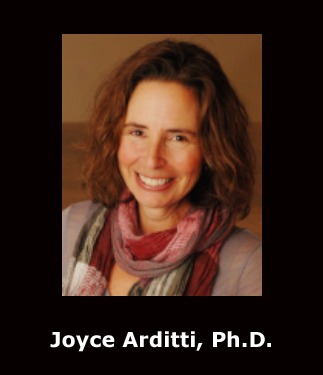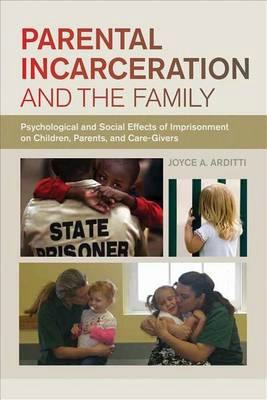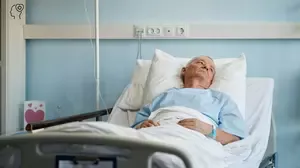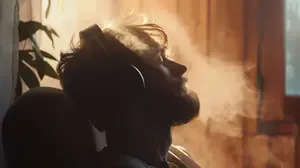Interview With Dr. Joyce Arditti
Want To Study Psychology?
Joyce Arditti is Professor of Human Development at Virginia Tech. Her research interests include family disruption, parent-child relationships in vulnerable families, and public policy. Her scholarship is recognized nationally and abroad and she has published numerous empirical and review articles in therapy, human services, family studies, and criminal justice journals. Dr. Arditti recently served as the editor in chief of Family Relations: The Interdisciplinary Journal of Applied Family Studies.
Q & A
You received your Ph.D. in Family Studies in 1988. What would you say have been the important developments within the discipline since that date?
Methodologically:
User-friendly statistical software (such as Amos for structural equations modeling) that has enabled family scientists to more readily study complex relationships amongst variables. Greater acceptance and understanding of qualitative methods that permit the exploration of nuanced meaning, complexity, and family process
Substantively:
Much greater appreciation and understanding of family diversity and family process. Continued movement away from mechanistic models of family functioning. More sophisticated understanding of the role of gender, race, ethnicity, and other social statuses that contribute to marginalization - that is, the development of a theory of “intersectionality” and how certain statuses are layered, for example, a person or family may hold membership in more than one stigmatized social status, and the cumulative effect this might have on the individual and his or her family member. We see this very clearly with incarcerated persons and their families, particularly incarcerated women who tend to be poor women of color.
What led you to develop research interests within the criminal justice system?
While I have long studied family transitions and marginalization (e.g. my prior work in the area of divorce), I initially became interested in the criminal justice system when a close friend of mine was involved in the federal system for a drug charge in 1996. At that time there was little research on families and the criminal justice system and scholars were just beginning to realize the impact of mass incarceration policies on families and society. My friend was sentenced and convicted and I ultimately visited him at the facility where he was held many times. I was treated in a way I had never been treated before - without the normal decorum or respect I was used to as a university professor. Who I was did not matter - we were all the same as we entered the prison facility.
|
I withstood very lengthy waits and rude treatment to visit my friend and as a result of my time there, would talk to the other families that were also waiting to visit. I began to see how relationships formed among visitors and everyone had a story and set of experiences with the criminal justice system that were profoundly influential in shaping their lives and the developmental trajectory of any children who were visiting. What struck me the most was the sense of stigma and shame that all visitors seemed to share with the inmate as well as the sense of anger at the system. People were angry about being marginalized and for the deprivations they and their family member’s experienced due to incarceration. |
Find A Psychology School Near You
|
Everyone had stories of mistreatment at the hands of correctional officers and the courts, reminiscent of my studies on divorced fathers (i.e. the “system” being unfair). I realized I had entered into a “hidden pocket” of experience due to my insider status as a visitor and that these stories of families impacted by incarceration needed to be told. I have never witnessed so much pain, vulnerability, and also strength, as I had amongst these families who were also “doing time” with the incarcerated person. I was deeply affected by the experience as well as my own personal journey with my friend who was incarcerated for several years on a non-violent drug charge.
You note that Spinoza's dictum - Do not weep; do not wax indignant. Understand - provided inspiration for your book on parental incarceration. Could you explain why this was so?
I came across this in Loic Wacquant’s work—whose critical scholarship I greatly appreciate. Unless one has directly studied or come into contact with the criminal justice system and been inside prisons, it is easy to cast judgment on offenders and their families without fully understanding the conditions that contribute to incarceration including U.S. social policy.
Understanding is the only way out of the mess we are currently in, even if that understanding is based on economic shortfalls which are causing States to a least to reevaluate the use of incarceration, the problems associated with prisoner reentry, and perhaps contributing to more thoughtful responses to “crime” and its myriad manifestations. I am not a bleeding heart, but like many scholars who are also critics of the failed policies of the United States, namely mandatory minimums and conspiracy laws associated with nonviolent drug offenses, incarceration is not a solution to drug use and other social conditions such as poverty and high unemployment.
The country is in quite a mess now with so many people criminalized and unable to successfully reenter into society, particularly given the state of the economy right now and discriminatory policies which disenfranchise ex-offenders and sometimes their families. We are just now articulating the tremendous impact parental incarceration and its co-occurring conditions (cumulative disadvantage) have on children and subsequent generations.
Have you examined the effects of incarceration outside the United States?
A little. I greatly respect Joseph Murray’s work in the UK, and include it in the book. We see similar issues in the UK with regard to the negative effects of parental incarceration and its associated disadvantage on children. I have also been interested in some of the more innovative prison programs that have been implemented in Canada—for example programs that permit overnight family visiting and or rehabilitative prison work farms. Ironically the current conservative Canadian government has recently closed some of these farms and is adopting a more traditional incarcerative model similar to the US despite decreasing crime rates in Canada. Those who advocate for prisoners’ rights in Canada are meeting this shift with much resistance.
In my book, I do touch on global conditions when I discuss presentence detainment—incarcerating people before trial is a human rights issue all over the world, particularly in developing countries. Sadly, with respect to incarceration, no other country really comes close with regard to mass imprisonment policies that affect millions. This is not to say incarceration and related conditions are not an issue in other countries. Certainly there are places around the world that enact punishment policies that may be cruel, unwarranted, and unjust. For example, some might say that compared to certain countries that reportedly put drug offenders to death, US drug policy is humane.
What were the main challenges of conducting research in corrections settings?
Obviously, the greatest challenge is one of access, that is, getting permission to interview offenders during their confinement. In contrast to university contexts, prisons are by their very nature closed settings that can be difficult to penetrate. Hence the importance of “insider experience” and research that emerges from convict criminology. Assuming one articulates his or her standpoint, insider experience is extremely important in terms of sensitizing a researcher to the offenders’ (and family members’) vulnerabilities and strengths, how to navigate the corrections system, what kinds of questions to ask, and uncovering that “hidden experience” and nuanced meaning that may be lacking in traditional research. In a recent article I published in “The Qualitative Report” on Emotions and Fieldwork in Corrections settings (see link below), I discuss the implications of strict human subjects’ policies, which on one hand protect offenders, but on the other hand run the risk of perpetuating their invisibility and silencing them.
A second issue involves accessing family members and children to learn more about their experiences. It is difficult to randomly sample marginalized populations, thus qualitative methods and other research strategies that do not necessarily rely on random sampling, but have scientific integrity and honor the depth of human experience are particularly important in order to understand parental incarceration. Research must not further marginalize the participant and science must recognize the reality of institutional barriers in shaping research studies.
An issue I explore at length in the article is the role of emotions in research – if one is making contact with the prison, its employees, family members and the offenders within, it is impossible to be completely objective. Positivistic research must acknowledge the reality of subjectivity in my opinion, whether one is an insider or not. One colleague who conducts research in jails and prisons read my article and told me she cried after finishing the article—it was so true, that is the level of feeling one has in conducting this type of research is often profound and unexpected.
Researchers often come away from interviewing emotionally upset, exhausted, or deal with feelings of helplessness. And it is not just a result of studying offenders and their families, but also corrections’ staff. They are sources of great knowledge and their voices count as they are on the front lines. I just finished doing a process evaluation on another project and had the opportunity to interview some amazing employees (prison guards, probation officers, client advocates in community corrections, wardens) from the Virginia Department of Corrections who work with women offenders. I was greatly inspired by their efforts and they seemed so appreciative of the time they spent talking with me - that as a researcher I was actually interested in their experience, their struggles, successes, and frustrations with the system. I really respect how hard some of these folks work and they are truly advocates for the women they try to help. Many prison staff really want to see the offender succeed on the outside and reconnect with their families.
What advice would you give to someone hoping to pursue an academic career?
Ooh, that is a separate interview in and of itself. I suppose it depends on what type of academic career. One needs to have a sense of what he or she is passionate about—teaching, research or both? One needs to think about what social issues one cares about the most. Personal experience can play into that as long as it does not blind you.
Having a sense of passion about what one does is important as academia can be very demanding, especially at a Research university, and you will need that passion to get through…there is a lot of rejection and critique in academia and a person needs an incredible amount of persistence to keep going at times. It is also important not to get discouraged, particularly when one has a social justice agenda and is studying marginalized populations.
Scholars can make a difference one student at a time, one study at a time—hence my closing quote in the conclusion of the book “The journey of a thousand miles starts with a single step.” I have to believe that; otherwise I don’t know if I could do the work that I do.
Essential Reading
(Winner of the 2014 Outstanding Book Award presented by the Academy of Criminal Justice Sciences)
Book Description
Over 2% of U.S.children under the age of 18—more than 1,700,000 children—have a parent in prison. These children experience very real disadvantages when compared to their peers: they tend to experience lower levels of educational success, social exclusion, and even a higher likelihood of their own future incarceration. Meanwhile, their new caregivers have to adjust to their new responsibilities as their lives change overnight, and the incarcerated parents are cut off from their children’s development.
Parental Incarceration and the Family brings a family perspective to our understanding of what it means to have so many of our nation’s parents in prison. Drawing from the field’s most recent research and the author’s own fieldwork, Joyce Arditti offers an in-depth look at how incarceration affects entire families: offender parents, children, and care-givers. Through the use of exemplars, anecdotes, and reflections, Joyce Arditti puts a human face on the mass of humanity behind bars, as well as those family members who are affected by a parent’s imprisonment. In focusing on offenders as parents, a radically different social policy agenda emerges—one that calls for real reform and that responds to the collective vulnerabilities of the incarcerated and their kin.
See following link for full details.
Parental Incarceration and the Family
Recent Articles
-
Psychological Impact of Catastrophic Injury & Recovery
Feb 17, 26 02:26 AM
Explore the psychological impact of catastrophic injury, including trauma, identity shifts, resilience, and long-term mental health recovery. -
Psychology Articles by David Webb
Feb 10, 26 06:31 AM
Discover psychology articles by David Webb, featuring science-based insights into why we think, feel, and behave the way we do. -
Music and Memory: How Songs Shape Identity, Emotion, and Life Stories
Feb 10, 26 06:25 AM
How music and memory intertwine to preserve identity, evoke emotion, and anchor life stories. A psychological look at playlists, nostalgia, and the brain.
New! Comments
Have your say about what you just read! Leave me a comment in the box below.Go To The Psychology Expert Interviews Page







New! Comments
Have your say about what you just read! Leave me a comment in the box below.